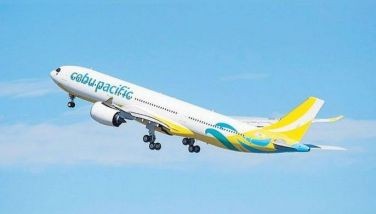Regional tensions, climate change threaten growth
MANILA, Philippines - Business leaders said increased tension and environmental problems that economic growth may bring must be overcome simultaneously.
Atsutoshi Nishida, chairman of Toshiba Corporation of Japan, said yesterday the Asian region is fast becoming a driving force that already accounts 30 percent of global gross domestic product (GDP), and Asia’s growth will support global growth.
“With this in mind, the World Economic Forum on East Asia (WEF-EA) provides an excellent opportunity to look at the region’s future and the challenges and issues it faces in securing sustainable economic growth,†said Nishida, co-chair of the two-day WEF-EA meeting hosted by Manila.
He said key challenges for the future should be identified and the two-day meeting should help create key concepts for sustainable growth, emphasizing the importance of the business sector embracing equitable growth as a guiding concept.
“East Asia now faces three challenges that must be overcome simultaneously. First, economic growth may bring with it an increased environment of tension, and it will also accelerate consumption and depletion of natural resources. We must also address the impact of climate change,†Nishida said.
Economic vitality, he said, has made the Philippines one of Asia’s fastest growing economies, citing the country’s 7 percent GDP growth last year despite the damages caused by super Typhoon Yolanda.
James Riady, chief executive officer of Lippo Group in Indonesia, said tensions in the region leave “direct†and “indirect†impacts on business enterprises. The challenge for WEF, he said, is to focus on economic integration and growth.
The business leaders stressed the important role ASEAN should play in territorial disputes in the South China Sea involving ASEAN member countries and China.
They said tensions must be addressed in Asia as the region is becoming more prosperous.
“I want ASEAN to be united... by tackling social issues as soon as possible. ASEAN is very important, considering the current territorial issues. ASEAN is more important,†Takeshi Niinami, co-chair of the WEF-EA and chairman of the Lawson group of Japan, said.
Despite current territorial issues that affect businesses, Niinami said the risks between politics and business should be eliminated, and the focus should be on business first.
The business leaders said natural disasters are stumbling blocks for sustainable economic growth of the region.
“Natural disaster is the highest risk factor for this region. We should work together to minimize the risk and increase capability of resilience. We should share the experience and know-how,†he said. – Pia Lee Brago
- Latest
- Trending





























